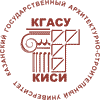About the authors
| First name, Middle name, Last name, Scientific degree, Scientific rank, Current position. Full and brief name of the organization, The organization address. | Nagibin G.E. – candidate of physical and mathematical sciences, associate professor E-mail: This e-mail address is being protected from spambots. You need JavaScript enabled to view it Dobrosmislov S.S. – researcher E-mail: This e-mail address is being protected from spambots. You need JavaScript enabled to view it Zadov V.E. – candidate of chemical sciences E-mail: This e-mail address is being protected from spambots. You need JavaScript enabled to view it Syhodoeva N.V. – post-graduate student E-mail: This e-mail address is being protected from spambots. You need JavaScript enabled to view it Fedorova E.N. – candidate of technical sciences, associate professor E-mail: This e-mail address is being protected from spambots. You need JavaScript enabled to view it Siberian Federal University The organization address: 660041, Russia, Krasnoyarsk, Svobodni st., 79 Lichman N.V. – candidate of technical sciences, associate professor E-mail: This e-mail address is being protected from spambots. You need JavaScript enabled to view it Norilsk State Industrial Institute The organization address: 663310, Russia, Norilsk, 50 let Oktibra st., 7 |
| Title of the article | The behavior of sulfur-based mortars and sulfur concretes at different temperatures |
| Abstract. | The paper contains new results on the development of sulfur-based composite materials (sulfur concrete) and a study of their properties. Fine-dispersed waste products of the Krasnoyarsk region industries (ashes from the Krasnoyarsk thermal power plant and metallurgical waste of GMK «Norilsk Nickel») were used as physical modifiers tooptimize physical and mechanical properties of sulfur-based mortar. Dicyclopentandiene was used as the chemical modifier. An analysis of the chemical composition and XRD analysis of initial materials were carried out. The optimal composition of sulfur concrete allowing to obtain high strength properties was proposed. The behavior of sulfur-based mortars and sulfur concretes was studied at different temperatures; it was shown that the sulfur-based materials are environmentally friendly in the temperature interval of application. Release of sulfur dioxide begins at temperatures higher that 130°С, at 180°С an intensive release was observed. Thermal stability of mortar-based materials with additions of GMK «Norilsk Nickel» wastes is somewhat lower compared to ash wastes. A study of strength properties of the developed sulfur concretes in the temperature range from -40° to +80°С shows no significant changes. Addition of dicyclopentandiene allows to increase the compression strength by 20 % and the bending strength by 30 %. The expediency of the use of sulfur in industrial and civil construction was confirmed. |
| Keywords. | Sulfa, concrete, waste of metallurgists, ash, strength, modifier. |
| For citations: | Nagibin G.E., Dobrosmislov S.S., Zadov V.E., Syhodoeva N.V., Fedorova E.N., Lichman N.V. The behavior of sulfur-based mortars and sulfur concretes at different temperatures // Izvestiya KGASU. 2013. №4(26) P.245-251. |















